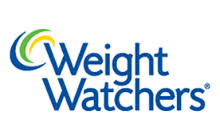 More employers are recognizing the link between workers who may be overweight or obese on one hand, and health care costs, employee engagement and productivity on the other. As a result, some companies are adopting wellness programs that focus on weight loss as part of an overall culture of health at the workplace.
More employers are recognizing the link between workers who may be overweight or obese on one hand, and health care costs, employee engagement and productivity on the other. As a result, some companies are adopting wellness programs that focus on weight loss as part of an overall culture of health at the workplace.
 Humana and Weight Watchers are the latest example of two health brands coming together to address what is one of the toughest behavior changes known to humans: losing weight. Humana will extend access to Weight Watchers for the health plan’s enrollees in an integrated wellness program. The program is free to members for the first six months of participation, and then deeply discounted. People who want to join the program can do so online taking advantage of real-time “Expert Chat” with Weight Watchers coaches, or attend in-person meetings at a local bricks-and-mortar location.
Humana and Weight Watchers are the latest example of two health brands coming together to address what is one of the toughest behavior changes known to humans: losing weight. Humana will extend access to Weight Watchers for the health plan’s enrollees in an integrated wellness program. The program is free to members for the first six months of participation, and then deeply discounted. People who want to join the program can do so online taking advantage of real-time “Expert Chat” with Weight Watchers coaches, or attend in-person meetings at a local bricks-and-mortar location.
“Employers can and should play a role in combating obesity and will welcome the development of accessible, affordable and evidence-based management solutions,” the CEO of the National Business Group on Health, Brian Marcotte, said about the partnership.
Humana’s wellness initiatives include health coaches, personal nurses, disease management programs (think: Type 2 diabetes coupled with obesity, aka diabesity), and the healthy living rewards program, HumanaVitality.
Weight Watchers is the world’s largest provider of weight management services, and the best-recognized brand in the space.
 Health Populi’s Hot Points: The vast majority of employers providing health insurance at the workplace are tag-teaming high-deductible health plans with workplace wellness programs, discussed here in Health Populi. Humana’s program couples weight loss with a program enjoying historically high brand equity, Weight Watchers, which received the 2012 Harris Poll EquiTrend Weight-Loss Plan Brand of the Year — the only brand to emerge in the weight management category in the survey.
Health Populi’s Hot Points: The vast majority of employers providing health insurance at the workplace are tag-teaming high-deductible health plans with workplace wellness programs, discussed here in Health Populi. Humana’s program couples weight loss with a program enjoying historically high brand equity, Weight Watchers, which received the 2012 Harris Poll EquiTrend Weight-Loss Plan Brand of the Year — the only brand to emerge in the weight management category in the survey.
There will be employees who welcome their companies’ weight-loss programs into their lives, especially people who intend to lose weight and value six months of Weight Watchers “for free.” There will also be workers who perceive this “free” offer to be intrusive, akin to Big Brother watching the scale, and fearful of information sharing between the wellness program, health plan and employer. Transparency and clear rules for personal health information sharing are crucial underpinnings to these programs, which increasingly combine sticks with carrots. With a nod economics guru Milton Friedman, that “free lunch” really isn’t so free.
Weight Watchers is looking for new ways to channel its program, given recent reports that its stock took a hit due to competition from a non-obvious source: fitness trackers and digital health devices. During the past three years, attendance at meetings has plunged by 35%. That has slimmed revenue at the Manhattan-based company by a sixth, and its stock shed 75% of its value in 2014.
The company launched a new ad campaign during Super Bowl featuring the tagline, “All You Can Eat.” Here is the clever ad, in its entirety:




 I'm in amazing company here with other #digitalhealth innovators, thinkers and doers. Thank you to Cristian Cortez Fernandez and Zallud for this recognition; I'm grateful.
I'm in amazing company here with other #digitalhealth innovators, thinkers and doers. Thank you to Cristian Cortez Fernandez and Zallud for this recognition; I'm grateful. Jane was named as a member of the AHIP 2024 Advisory Board, joining some valued colleagues to prepare for the challenges and opportunities facing health plans, systems, and other industry stakeholders.
Jane was named as a member of the AHIP 2024 Advisory Board, joining some valued colleagues to prepare for the challenges and opportunities facing health plans, systems, and other industry stakeholders.  Join Jane at AHIP's annual meeting in Las Vegas: I'll be speaking, moderating a panel, and providing thought leadership on health consumers and bolstering equity, empowerment, and self-care.
Join Jane at AHIP's annual meeting in Las Vegas: I'll be speaking, moderating a panel, and providing thought leadership on health consumers and bolstering equity, empowerment, and self-care.